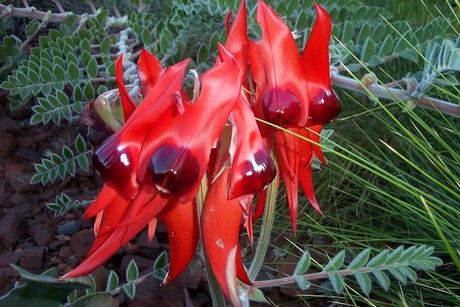Who’s who in biotech business development gather in Adelaide

The Business Development Workshop and Forum has kicked off in Adelaide, with delegates keen to understand the changing landscape of licensing deal collaborations and what it means for business development in biotechnology companies.
Running from 20-21 March, the annual event is supported by BioSA and the SA Government, who hosted a welcome reception on the evening of 19 March.
One of yesterday’s key guest speakers, Dr Dean Moss, Acting Chief Executive Officer at UniQuest, said biotechnology companies need to adopt new business development strategies as the days when a partner would “come in early and find you are long gone”.
He also said the changing times did not mean small companies should give up on seeking the backing of a big pharmaceutical company or potential partner. Instead, for biotechnology companies looking for a partner it was now a case of “you need to find ways to work with them that don’t depend - and this is hard in a small biotech - on a financial consideration from them”.
Another high-profile speaker, Leigh Farrell, Vice President of Business Development at Biota, underscored the importance of appropriate pre-clinical planning to avoid a scenario where a prospective partner “looks at your data packages and says there are holes”.
It was also important to show not only clinical proof of concept but also “proof of relevance”, he said, demonstrating not only effectiveness but also extending this to projections around pricing and reimbursement.
“It’s not just about getting things into the clinic; it is about building valuable data packages, be it in the clinic or otherwise,” Farrell said of the approach needed by biotech companies.
On the plus side, he said, Australia has a pool of industry figures with experience working inside multinational companies in advanced product development. The challenge was to inject this experience into biotech companies at the other end of the scale.
“It’s about working out innovative ways for smaller companies to access that faculty of knowledge in a meaningful way, to make more efficient use of capital and make more informed decisions on their drug or medical device development pathways,” Farrell said.
Speaking more broadly, Farrell said biotech companies could be thinly capitalised in today’s climate and so have difficulty funding themselves through to inflection points that would be conducive to getting a licensing deal done.
There was also a reduction in the number of funds investing in biotechnology, both locally and internationally, and those who showed reduced appetite for the long lead-times of drug and medical device development.
Despite this, South Australia’s technology landscape has grown significantly over recent years. Now with over 100 companies, 1700 full-time equivalent jobs and generating over $220 million per year in revenue, South Australia is proving to have world-class potential as a competitive technology sector.
This potential was demonstrated in the BioSA - Bioscience Achievement Awards, announced on Tuesday night. The awards recognise individuals involved in the South Australian bioscience and technology community who have made an important contribution to the development of South Australia’s bioscience industry.
The Young Achiever award is for individuals under 40 or who have been operating in the industry in a postgraduate or working capacity for 10 years or less and have made a significant contribution to their company/organisation. It was awarded to Dr Antony Sheehan from TGR BioSciences (Flinders University), who led the R&D development of two company products - ElisaOne and DuoPlex - both of which involved the development of proprietary technology and aligning with the commercial needs of the industry.
The Industry Leader award is for individuals who have made a significant impact on the growth and development of their company/organisation and/or the South Australian bioscience industry. It was won by Victor Previn, who founded Ellex Medical Lasers and has been its Chairman since July 2005.
Also announced on the night was the news that Adelaide venture capital firm Terra Rossa Capital has partnered with Melbourne-based Grey Innovation, one of Australia’s leading engineering and commercialisation companies, to form the new Verde Innovation Fund. The fund is based on a unique structure with the potential to transform the commercialisation of Australian innovations.
Day one of the BF Forum included keynote speeches from international guests John Cullity, Principal, Torreya Partners and Philip Baddeley, Investor & Entrepreneur, Equity Fingerprint.
Included in the program for the first time was an interactive Presentation Skills workshop to give you the edge when pitching your company to potential partners and investors. The up-close-and-personal workshop works to enhance and hone your presentation skills, performance and effectiveness in an interactive and supportive forum.
The event continues today.
Sequencing tech could transform NZ viticulture
A new initiative aims to utilise genomics to breed better varieties of grapevines and hops that...
Eight babies born in UK following mitochondrial donation
The birth of eight babies with a greatly reduced risk of developing mitochondrial DNA disease...
'Directed evolution' used to design molecules in mammal cells
Scientists have developed a system that uses so-called 'biological artificial...




